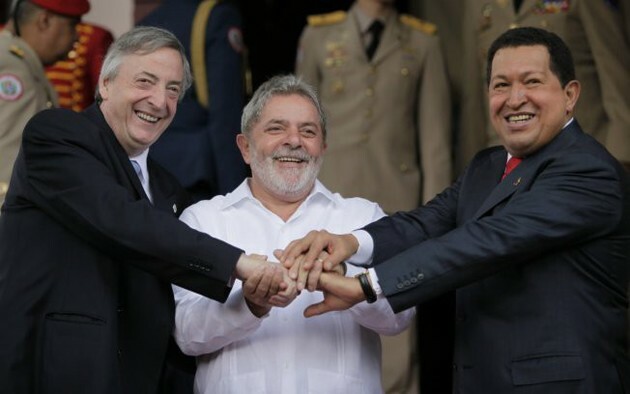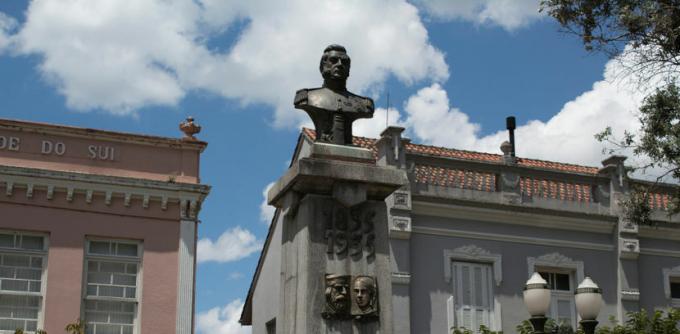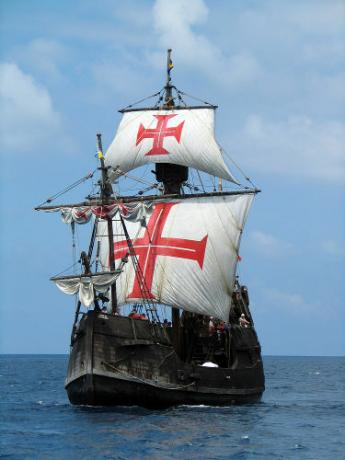O Lula government comprises the two terms of President Luiz Inácio Lula da Silva, from 2003 to 2010.
His administration lifted thousands of people out of absolute poverty, but it was marked by cases of corruption such as the monthly.
Despite this, Lula managed to elect his successor, former minister Dilma Rousseff.
Economy in the Lula Government
The Lula government continued the economic policy of its predecessor, the president Fernando Henrique Cardoso. Keeping inflation under control and the real stable continued to be the government's priority.

Lula also counted on a favorable foreign scenario when China and India started to grow, open their markets and consume more. This generated an increase in exports of raw materials and Brazilian commodities.
Likewise, when the economic crisis began in 2008 in the United States and Europe, Brazil was not hit so hard. The government reduced certain taxes, such as the Tax on Industrialized Products (IPI), which levies on household appliances, for example.
Thus, the industries did not pass the increase on to the consumer, making the domestic market help to keep the Brazilian economy stable.
Because of this crisis and the good moment that the Brazilian economy was going through, foreign businessmen and workers started coming to Brazil to invest and try to make a living here.
During this period, the Pan American Games (2007) were also held with a view to winning the right to host the Olympic Games.
Brazil managed to get its candidacy approved to host the World Cup (2010), the Military Games (2011), the World Games of Indigenous Peoples (2015), and the Olympics and Paralympics (2016).
The construction of stadiums and infrastructure needed to host these events impacted the local economy. Likewise, they contributed to projecting the image of a prosperous and stable Brazil abroad.
Growth Acceleration Program
In 2007, the government launched the Growth Acceleration Program (PAC) with the aim of increasing the country's infrastructure.
President Lula chooses the minister Dilma Rousseff to be ahead of this plan and thus increase its visibility and be able to build a strong candidacy in the 2010 presidential elections.
Later, the program was expanded to reach other areas that needed attention, such as childhood, housing and historic cities. The money to fund these programs would come from the federal government and private companies.
These contractors, to get contracts and win bids, paid bribes to deputies and senators. On certain occasions, the politicians themselves charged some kind of bribe to release works. This would become one of the biggest scandals of the Lula government that would be discovered during the Dilma government.
Social Programs in the Lula Government
In his 2003 inaugural speech, President Lula recalled that many Brazilian citizens were still unable to eat three meals a day. Therefore, he called upon all to join the fight against the hunger.
Thus, the government started several social programs, whose great star would be the Bolsa-Família (2004), where the income was transferred directly to the families.
Beneficiaries had to meet certain requirements, such as having a monthly income of 85 to 175 reais, having pregnant women or children aged 0 to 17 among their family members. The amount received by the families ranged from 35 to 176 reais a month. In return, the family would commit to keeping their children in school and going to the doctor regularly.
This program was one of the government's greatest successes, as extreme poverty was reduced by 75% in Brazil, between 2001 and 2014, according to data from FAO (United Nations Food and Agriculture Organization).
Although it was criticized by the opposition as clientelist, the fact is that many families were able to gain access to food, school supplies and clothing for the first time.
education in the Lula government
For education, the Lula government prepared a plan that sought to democratize access to school at all levels and throughout the national territory. Fundeb (2007) was instituted to help finance and expand basic education.
In higher education, it promoted the expansion of scholarships for master's and doctoral degrees, with the aim of increasing the number of qualified professors at universities by 5%.
Access to higher education for the poorest strata of the population was expanded through the system of social and racial quotas adopted by 20 federal universities in 14 states.
In 2009, the Unified Selection System (Sisu) was created, which chooses students for vacancies in federal universities through the grade of the National High School Exam (Enem).
With this, a student from any state in the country has the opportunity to attend a federal university in another, without the need to take another exam.
The government would open 14 new federal universities to increase places. However, at the same time, it allowed private universities to grow thanks to funding programs of public scholarships at private universities through the Prouni (University for All Program) created in 2005.
Foreign Policy in the Lula Government
In the field of foreign policy, the Lula government promoted visits to several countries. He also participated in international forums such as Davos and the G-20, where Lula supported Russia's entry into this body.
In addition, it maintained a cooperation agenda with countries such as China, India, Russia and South Africa, which resulted in the economic alliance BRICS.
In international relations, the countries of South America were privileged through the strategic closeness between presidents Lula, Néstor Kirchner and Hugo Chávez. This alliance had more pragmatic objectives – construction of refineries, investments in Argentina – than ideological ones.

Africa was also the target of political rapprochement, as the 19 embassies opened on this continent attest, followed by an increase in trade. In 2002, the exchange between Brazil and the continent totaled US$ 5 billion; in 2008, it rose to US$26 billion.
Lula also forgave the foreign debt of several African countries, including Nigeria, in order to promote South-South cooperation.
All these measures were intended to force a reform in the UN and achieve a permanent seat on the Security Council of this body.
Despite the effort, Brazil did not obtain the desired position, but saw trade increase with almost all the countries with which it had relations.
At the end of his term, Lula would star in the most controversial moment of his foreign policy when he received Iran's president, Mahmoud Ahmadinejad, in Brasilia, in 2009.
Corruption Scandal: Monthly
O monthly it was a system of illicit payments that the federal government used to secure the support of deputies and senators in voting for laws and amendments favorable to the government.
The scheme was discovered through footage taken by hidden camera when a director of the Post Office explains to two businessmen how the bids were rigged. Participating in this scheme would be the deputy and president of the PTB, Roberto Jefferson, who was an ally of the government.
From that moment on, a series of investigations were carried out and the CPI (Parliamentary Commission of Inquiries) was instituted, which peppered several allies of the Lula government.
Deputy Roberto Jefferson himself accused the PT treasurer, Delúbio Soares, of making payments to some deputies of the National Congress. These payments were called "monthly" as they were made monthly.
The accusations overthrew the Minister of the Civil House, José Dirceu; and Congressman Roberto Jefferson was declared ineligible for 10 years.
Another PT deputy, João da Cunha, was accused of participating in this plot, but he resigned his mandate as a deputy before any charges against him were formalized.
squid's prison
After the end of his term, former President Lula dedicated himself to giving lectures abroad and discreetly remained behind the scenes of Dilma's government.
However, allegations of corruption began to be investigated by Judge Sérgio Moro. Lula was accused of receiving help from the OAS company to reform a triplex located in Guarujá in exchange for favors.
Despite claiming that the triplex did not belong to him, the former agent was sentenced to 9 years in prison for passive corruption and money laundering. Thereafter, he would have his sentence increased to fourteen years.
On April 7, 2018, Lula entered the prison in Curitiba to serve his sentence, where he remained for 580 days. On November 8, 2019, he was released after the Federal Supreme Court ruled that his arrest at second instance was unconstitutional.


